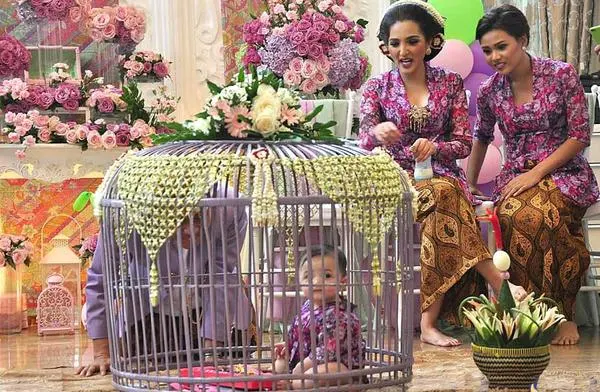10 Weird Traditions Associated with Newborns
10 Weird Traditions Associated with Newborns
Across the world, different cultures celebrate the birth of a baby in unique and sometimes unusual ways. From rituals that are believed to bring good fortune to those meant to ward off evil spirits, here are ten of the strangest traditions associated with newborns. These traditions reflect deeply held beliefs, superstitions, and cultural heritage passed down through generations.
1. Throwing Babies from Towers – India
In some parts of India, particularly in Karnataka and Maharashtra, newborns are carefully dropped from a height of about 50 feet onto a sheet held by villagers. This centuries-old practice is believed to bring the baby good luck and strength.
- Practiced by both Hindu and Muslim communities.
- Considered a symbol of faith and devotion.
- Authorities have tried to ban the practice, but it still persists in some villages.
- It is believed to strengthen the baby's immune system.
- Some communities have modified the tradition by using lower heights and better safety measures.
2. Placing Babies in a Hole – Indonesia
In the Toraja community of Indonesia, stillborn babies are placed inside a hollowed-out tree trunk. Over time, the tree is believed to grow around the baby, symbolizing their return to nature.
- The tree is seen as a living grave.
- Families believe the baby’s soul will continue growing with the tree.
- Only practiced for infants who have not yet teethed.
- The tree is chosen carefully based on spiritual significance.
- The practice is becoming rarer with modern burial customs taking over.
3. First Haircut Offering – Mongolia
In Mongolia, a child’s first haircut is a significant event. The hair is cut and offered to the sun, moon, or water bodies as a form of blessing.
- The ceremony is called "Daah Urgeeh."
- Close family members take turns cutting the child’s hair.
- The collected hair is often tied to sacred trees or released into rivers.
- It symbolizes the beginning of a child's journey in life.
- The event is usually accompanied by prayers and celebrations.
4. Baby Tossing – Greece
In some parts of Greece, parents pretend to toss their newborns into the air to "scare away evil spirits."
- Rooted in ancient superstition.
- More symbolic than an actual toss.
- Considered a way to protect the child from misfortune.
- Similar traditions exist in other Mediterranean cultures.
- Often performed during major celebrations.
5. Naming Ceremony Delays – Ghana
In Ghana, babies are not officially named until they reach their eighth day. It is believed that newborns are still connected to the spirit world during the first week of life.
- Known as the "Outdooring Ceremony."
- Parents announce the child’s name to family and community members.
- The baby is blessed with water and alcohol to signify purity and strength.
- The naming process is done by elders who consider cultural heritage.
- Music and dancing often accompany the event.
6. Silver Spoon Tradition – Argentina
In Argentina, it is a tradition to give newborns a silver spoon as their first gift. This symbolizes prosperity and protection from illness.
- The phrase "born with a silver spoon" originates from such traditions.
- The spoon is believed to bring lifelong wealth and success.
- Some families pass down silver spoons through generations.
- The gift is often accompanied by prayers or blessings.
- Similar traditions exist in other European and South American cultures.
7. Spitting on Babies – Kenya
In the Maasai culture of Kenya, elders spit on newborns as a way of blessing them and protecting them from bad luck.
- Spitting is considered a symbol of goodwill.
- It is also performed during weddings and other significant ceremonies.
- The more spit, the greater the blessing.
- The belief is that saliva carries positive energy.
- It is considered a way of transferring wisdom and strength to the child.
8. Foot Binding for Babies – China (Historic)
Historically, in China, baby girls from noble families had their feet bound tightly to keep them small. Small feet were considered a symbol of beauty and social status.
- This practice was common from the 10th to the early 20th century.
- It caused severe pain and deformities.
- Foot binding was officially banned in the early 1900s.
- It was believed to increase a girl's chances of marrying well.
- Despite the ban, some rural communities continued the practice secretly.
9. Baby Jumping Festival – Spain
In Castrillo de Murcia, Spain, a strange tradition known as "El Colacho" involves men dressed as devils jumping over newborn babies.
- Believed to cleanse babies of sin and bad luck.
- The festival dates back to the 17th century.
- It is part of the Catholic feast of Corpus Christi.
- Considered a unique blend of Christianity and pagan traditions.
- Despite safety concerns, no major injuries have been recorded.
10. Salty Water Bath – Turkey
In Turkey, newborns are often bathed in salty water to protect them from bad luck and to make them strong.
- It is believed to prevent excessive sweating in adulthood.
- Families believe it helps with intelligence and good health.
- Sometimes, a few drops of honey are added for sweetness in life.
- The bath is accompanied by prayers from elders.
- The ritual is deeply rooted in Turkish folklore.
Conclusion
These strange and unique newborn traditions showcase the diverse ways different cultures welcome new life into the world. While some of these customs may seem unusual, they hold deep significance in their respective societies. Understanding them helps us appreciate the rich traditions that make our world so diverse. As globalization increases, some of these traditions are fading, while others evolve to fit modern times.
@2025 Haruka Cigem - Curious Facts Explored.

Post a Comment